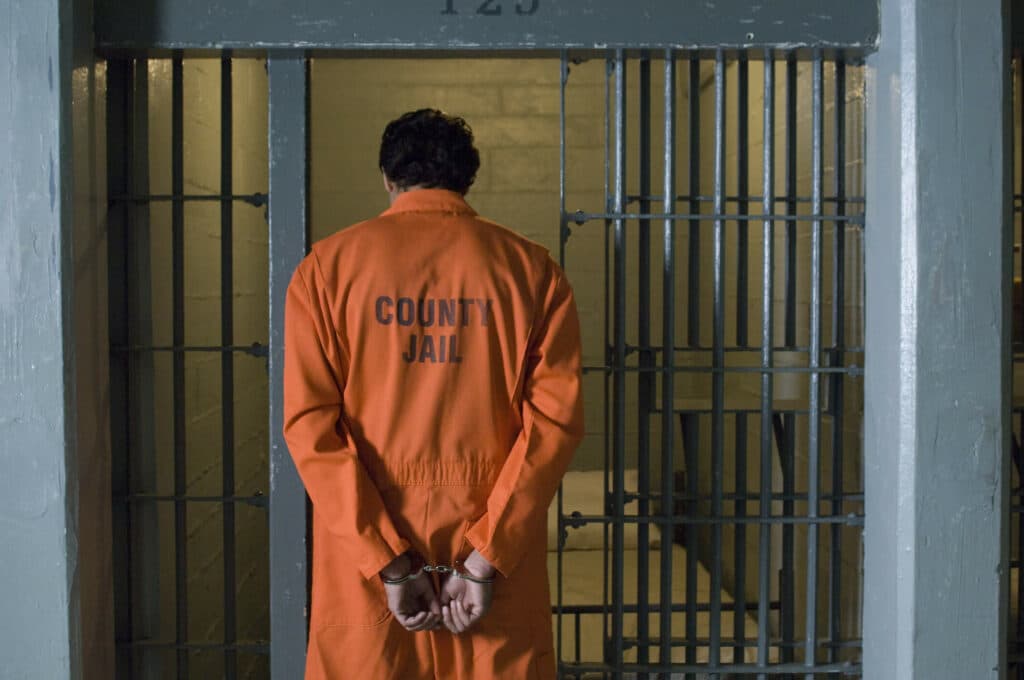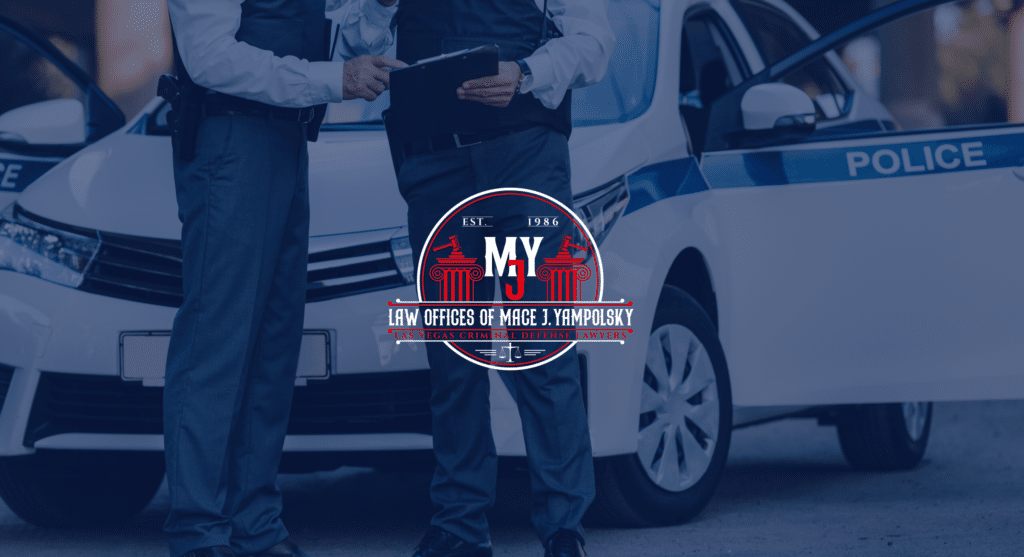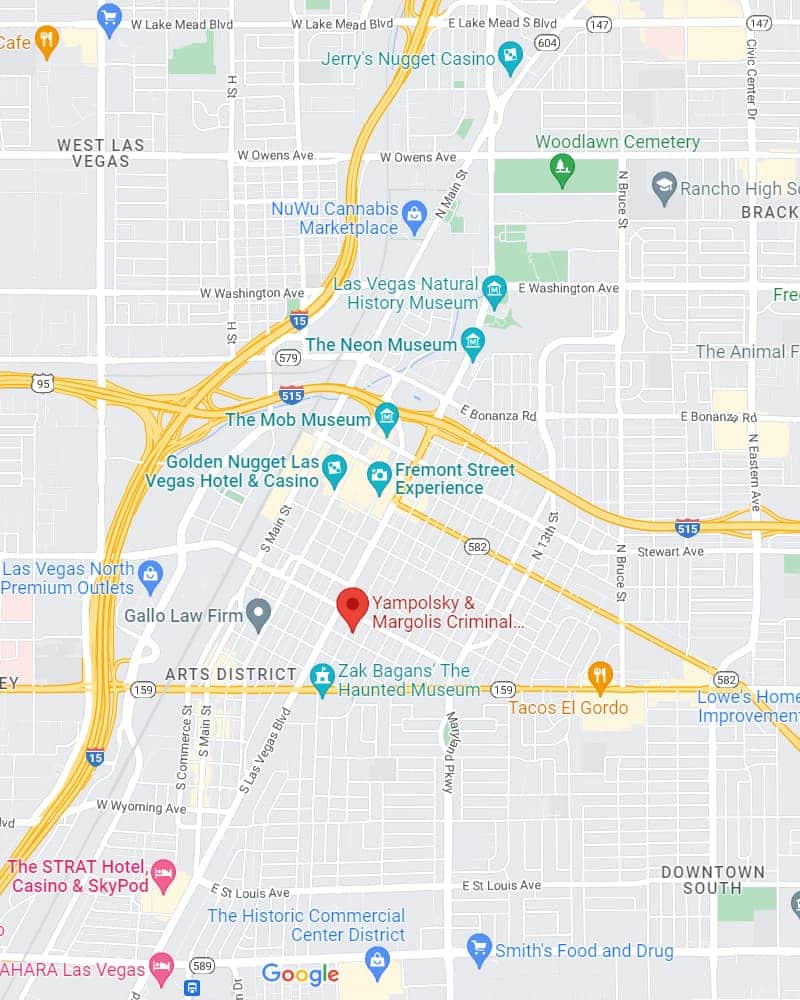Exploring Nevada’s Drug Court System: How Does it Work?
Ah, Nevada. It’s the home of gambling, those eclectic desert landscapes and…Drug Court? Believe it or not, Nevada is home to a burgeoning system dedicated to reforming those convicted of drug-related offenses. Its drug court system aims to provide treatment, education and other services to offenders, rather than slapping them with jail time. So, how does it work? In this blog post, we’re going to delve into the details of the Nevada Drug Court System and examine the advantages and disadvantages of this unusual approach to rehabilitation. We’ll explore the conditions for joining drug court, the various programs involved and how well the court system really works. Buckle up — we’ve got a wild ride ahead of us!
Quick Definition
In Nevada, any court jurisdiction may offer Drug Court as an alternative for those struggling with addiction. The program involves close court monitoring, treatment and sanctions for violations, to help participants get clean and ultimately avoid incarceration.
What is Drug Court in Nevada?
Drug Court in Nevada is a specialty court program designed to reduce recidivism among offenders with substance abuse and/or mental health issues. The court offers treatment rather than incarceration as an alternative to traditional criminal justice sanctions for individuals who have been arrested for non-violent drug offenses. Drug Court has the ultimate goal of improving public safety, achieving sustainable sobriety, decreasing criminal behavior and promoting positive change within the individual and their lives.
The Nevada Drug Court Program serves as a diversion program to prevent low-level, non-violent drug offenders from being sent to jail or prison. Participants plead guilty to their criminal charges and are then placed in Drug Court instead of receiving traditional sentencing such as probation or incarceration. Once enrolled in the program, participants will receive intensive community-based substance abuse treatment and other supportive services in an effort to address the underlying causes of their behavior. The program also involves regular monitoring and supervision by Drug Court in order to ensure that the participant is meeting the goals of their assigned treatment and following all conditions of their release.
Proponents of Drug Court argue that it provides an important alternative to incarceration for non-violent drug offenders, allowing them to receive treatment that could otherwise not be provided in a traditional correctional setting. They contend that providing resources for rehabilitation rather than prison time reduces recidivism, keeps communities safer and helps participants lead more productive lives. On the other hand, critics argue that Drug Court is too lenient on certain drug offenders and does not guarantee permanent recovery from addiction or prepare participants for reentry into society following completion of the program.
Nevertheless, Drug Court remains widely popular among law enforcement agencies, treatment providers and public safety advocates alike who understand its implications as a viable alternative to prison systems that cannot provide effective treatment options for substance abusers. As such, it has become an increasingly popular option for many individuals facing low-level drug charges in Nevada.
In conclusion, understanding Nevada’s Drug Court System is essential to gaining insight into how this beneficial program works and why it continues to be utilized by many communities throughout the state. In the next section, we will further explore the specifics of the Nevada Drug Court Program and how it has continued to provide individuals with access to treatment services while ensuring public safety.
The Nevada Drug Court Program
The Nevada Drug Court Program is a court-supervised, rehabilitative program, which aims to reduce drug offenses and associated criminal behavior. The program seeks to promote treatment and recovery in an effort to reduce recidivism. Eligibility for the program requires that participants must have been charged with or convicted of a qualifying offense and be someone who struggles with substance abuse. If accepted into the program, they must also agree to plead guilty and enter treatment as directed by the court.
Proponents of the Nevada Drug Court Program argue that it offers an alternative to incarceration and provides appropriate diversion, especially for first-time non-violent offenders. In addition, proponents point out that it promotes personal responsibility by encouraging offenders to accept responsibility through their participation in counseling or treatment programs. Moreover, many advocates maintain that this approach can result in reduced crime rates which translate into potential cost savings for law enforcement and taxpayers.
Opponents of the Nevada Drug Court Program disagree, arguing that it has drawbacks such as insufficient follow-up and monitoring of participants while they are in the program. Furthermore, some critics contend that there are few incentives for those who complete the drug court program other than avoiding jail time. Finally, opponents point out that any cost savings realized may be offset by costs associated with administering and staffing a formal drug court system.
Despite its potential drawbacks, research suggests that the Nevada Drug Court Program is effective in decreasing drug use among participants as well as reducing recidivism rates at certain levels of compliance with the program’s terms and conditions. As such, leading into the next section about “How Does Drug Court in Nevada Work?”, let us explore further how this evidence-based approach works towards helping people break free from substance abuse and criminal activity.

How Does Drug Court in Nevada Work?
Drug court in Nevada is a specialized court system that focuses on those individuals who have a primarily drug-based criminal history. The goal of drug courts is to provide non-prison options and treatment plans to individuals whose primary crime has to do with drug addiction. The recent surge in opioid misuse has contributed to the rise of drug court programs throughout the country as incarceration rates for certain types of offenses become more socially unacceptable.
In Nevada, drug courts are relied upon heavily for providing addiction services and other social services after an individual has been charged with a drug-related offense. Drug court uses a combination of court supervision, mandatory treatment agreements, and private outpatient/residential substance abuse programs. This method is meant to result in recovery from addiction in lieu of prison time. Over seven hundred people were admitted into Nevada’s drug court system in 2018 alone.
The most successful drug courts rely on regular judgment, careful supervision, and strict enforcement of rules to ensure sustainability. Allowing certain individuals to avoid jail or prison time requires the appointment of well-trained probation officers who are able to exercise sound judgment based on each case’s outcome and degree of risk to public safety. As such, it can be argued that good intentions must be matched with appropriate skills or standards to measure effectiveness within any drug court system.
On the other hand, some community members may take issue with how lenient Drug Courts can appear compared to traditional sentencing systems due to their focus on rehabilitation over punishment. At the end of the day, however, studies have shown that through leveraging community resources such as needed social services and aftercare planning where available, successful reintegration into society post release is much more likely for participants than for traditional criminal offenders without any rehabilitation prospects.
Overall it can be seen that Drug Court program is meant to serve as an alternative approach to criminal justice that emphasizes evidence-based policies instead of relying solely on traditional interventions. It is this framework which makes Nevada’s Drug Court System so valuable for those struggling with addiction and legal violations at the same time.
With an understanding of how Drug Court works in Nevada now established, the following section will look at outlining who is eligible for participation in these programs.
Must-Know Highlights
Nevada’s Drug Court System is an alternative approach to criminal justice that emphasizes evidence-based policies and provides individuals with drug-related criminal histories access to addiction services and other social service programs in lieu of prison time. It employs court supervision, mandatory treatment agreements, and private outpatient/residential substance abuse programs in order to achieve successful recovery from addiction. The system also increases the likelihood of successful reintegration into society post-release. Eligibility requirements will be discussed in the next section.
Who is Eligible for Drug Court?
Nevada’s drug court system is an increasingly popular approach to helping individuals struggling with substance abuse. It involves targeting the underlying problem of addiction, rather than focusing solely on punishing people for criminal offenses. But who is eligible for drug court?
In Nevada, any felony offender may be eligible for drug court. To be considered for entry into the drug court program, potential participants must meet certain criteria. This includes being a first-time or non-violent offender, having a history of drug abuse or addiction, and agreeing to participate in treatment. If a person has prior convictions or has been convicted as an adult before they can enter the program; they may not be eligible.
The number of people who can join the Nevada Drug Court Program is limited by the availability of funding and space in the programs themselves. Each county in Nevada sets their own eligibility guidelines and levels of acceptance based on the resources they have available to them. These guidelines generally reflect the current state and national trends in criminal justice reform.
For those who qualify, there are a variety of benefits associated with enrolling in the Drug Court Program. Participants may receive reduced sentences, access to treatment services, case management support, and referral services that help transition them back into society after completing their sentence. Despite these advantages, opponents of drug courts argue that they treat offenders too lightly and fail to provide deterrents to criminal behavior. Others oppose allowing people with extensive criminal backgrounds access to the program due to concerns about public safety.
While both sides make valid points, it is clear that Nevada’s drug court system offers hope and support to those with addiction issues by providing them access to resources and treatment that could help them turn their lives around. As such, it serves as an important part of meeting community needs for public safety while addressing social injustices like recidivism and overcrowded prisons.
Ultimately, whether someone is eligible for Nevada’s Drug Court Program depends on a variety of factors including their offense type and criminal background, as well as available resources within each individual county’s jurisdiction. Now that we have explored who is eligible for Nevada’s Drug Court System let’s turn our attention to how this process works step-by-step: The Drug Court Process.
- According to the Clark County 2008 Drug Court Statistics, 83.5% of graduates successfully completed drug court in Nevada.
- According to a study published in 2017, people who participated in the Clark County Nevada Drug Court Program experienced a 42% reduction in arrests and a 56% reduction in incarcerations.
- According to the 2014 Drug Court Programs Summary report, there was a 58% decrease in substance use among participants who graduated the Clark County Drug Court Program in Nevada.

The Drug Court Process
The drug court process is just as it sounds and revolves around a drug treatment court system to bring a more holistic approach to handling drug-related issues. The objective of the court is to redirect individuals charged with certain nonviolent drug offenses away from traditional prosecution and sentencing, and instead, provide them with an opportunity to receive long-term addiction treatment and other social support as alternatives for punishment.
The process begins when an individual is referred by law enforcement, the prosecutor’s office, or criminal defense lawyers in Las Vegas to participate in the drug court program; this is volunteer-based so not everyone who is eligible may opt in. Once accepted into the program, participants are closely monitored while they comply with all of the terms of the program, including attending regular meetings with their assigned probation officer, completing required coursework and therapy sessions, and submitting to random drug tests. Depending on the severity of their charges and overall progress in the program allows participants to move up through different phases (i.e. compliance phase, stabilization phase, transitioning phase). Upon completion of all requirements of the program, graduation ceremony may be held for those who have successfully met all the criteria for their sentence.
There has been backlash over drug courts in recent years due to opinions that believe some aspects may be perceived as unfair in comparison with criminal proceedings involving similar issues. Some experts oppose “subjecting individuals to military-style structure commonly seen in such courts” as factors that could contribute to a lack of community support for implementing drug courts into areas. Others note racial disparities among those being sentenced, imposing harsher sentences for Black individuals than White individuals found guilty of similar crimes. However, many states have taken active steps towards addressing these issues by implementing alternative forms of plea bargains alongside drug court programs and providing additional resources within their local communities surrounding mental health and affordable housing systems, further strengthening their credibility as an approved legal alternative.
With extensive evidence showcasing their successful results in reducing recidivism rates among participants, it is clear that Drug Courts can help reduce substance abuse by setting people on the path to recovery rather than merely punishing them while ignoring underlying causes or needs. To better understand how effective this strategy can be long-term we must observe how outcomes measure up after completion of Drug Court Programs. This leads us into our next section which will focus on Drug Court Outcomes…
Drug Court Outcomes
Drug court outcomes are controversial due to the state-mandated conditions of drug courts and the often long-term impact these outcomes can have on defendants’ lives. On one hand, advocates of drug courts point to their success in reducing reoffending and helping individuals transition out of a life of substance abuse and crime. Research has shown that many participants in drug courts have been able to successfully turn their lives around and remain sober for years after successful completion of the program.
On the other hand, there is also evidence that suggests some participants may not fare as well. Critics of drug courts argue that this system places the justice system in a paternalistic role, leaving the government in control of people’s lives for an indefinite amount of time. These critics worry that such heavy-handed measures can have negative impacts on individuals by creating dependency, restricting autonomy, and inhibiting personal growth.
Such criticisms point to a need for further evaluation into how best to monitor and assess treatment outcomes in order to ensure that individuals are receiving effective care while protecting their rights and autonomy. However, despite some criticism, drug court programs continue to be seen as an important and fruitful tool in confronting substance abuse issues across Nevada.
As such, it is important to consider potential alternatives to drug court in Nevada which could lead to positive overall outcomes for participants. The next section will look more closely at what other avenues may exist for those facing substance abuse issues within Nevada’s legal system.
Alternatives to Drug Court in Nevada
The state of Nevada has developed numerous alternatives to traditional criminal prosecution in order to reduce potential sentences, provide community service and crime prevention options, and divert individuals away from incarceration. The primary alternative to the drug court system is known as a “plea negotiation”, which is a legally binding process between the individual’s Nevada drug crime defense attorney and the prosecutor, who typically represents the state. Plea negotiations ultimately result in an agreement between parties where the accused individual pleads guilty in exchange for some kind of reduced sentence. In terms of drug offenses, defendants may receive reduced penalties from drug abuse classes, counseling sessions or other rehabilitative programs specific to their drug-related charges.
Another alternative to Nevada’s drug court system is attempting to have charges dismissed under certain circumstances. If a person can demonstrate that the charges were based on wrongful arrest or false accusations, the Las Vegas drug crime defense attorney may be able to persuade a prosecutor to drop or reduce the charges. Additionally, if evidence for a certain charge is missing or inconclusive, it is also possible for drug crime defense attorneys in Las Vegas to make legal arguments resulting in fewer or no repercussions for the accused individual despite law enforcement’s efforts.
Ultimately, it must be noted that although alternatives such as plea bargains and case dismissal are available options in Nevada, they require specialized knowledge and resources which many people facing criminal charges do not necessarily have access to without proper legal representation. Therefore, while a plea bargain or case dismissal can often lead to more favorable outcomes than drug court proceedings would produce, these paths are frequently inaccessible due to economic or socioeconomic factors.
For all of these reasons, it is important for those involved in criminal proceedings related to drugs in Nevada to consider creating viable plea arrangements with prosecutors and carefully examine their legal cases prior to embarking on any type of proceeding. Ultimately though, it is up to both sides of the argument – prosecution and defense – to engage in an open dialogue regarding potential sentencing and other recommendations that may help guide individuals away from incarceration while still allowing justice processes within Nevada’s laws. With this delicate balance in mind, let us turn our attention towards making a conclusion about exploring Nevada’s drug court system and how it works.
Conclusion: As we now understand after exploring the details of Nevada’s drug court system and examining alternative routes available for mitigating drug-related offenses within its context, there are numerous considerations which must be taken into account before deciding what course of action should be pursued. From understanding plea negotiations and case dismissals as viable alternatives all the way through analyzing various outcomes attainable through court proceedings, all angles must be examined closely prior to making any solid decision regarding how best handle such matters. In order for justice systems within Nevada law to remain both equitable and effective at curbing activities associated with illegal drugs, assessing every possibility closely before proceeding is essential in giving individuals accused of criminal offenses every chance at achieving reasonable resolutions with minimal impact on their lives or their futures.
Conclusion
The Nevada Drug Court System is a critical tool for the state to ensure that individuals facing drug-related charges are given the chance to receive the help they need for successful rehabilitation. As such, it serves as an important bridge between incarceration and long-term health and success. It also stands as a model for other states in how to responsibility handle cases involving substance abuse.
Overall, the Nevada Drug Court System has been successful in achieving its goal of providing graduates with life-saving treatment while reducing recidivism rates and saving money. The implementation of the program has meant a decrease in crime and costs associated with lengthy court proceedings and potential jail time, while also helping those participants on their recovery journey.
Yet, there have been some areas of concern raised over the program’s effectiveness. Its focus is limited to certain classes of drug offenses, meaning that those with more serious crimes are not eligible to participate. Furthermore, it is clear that more needs to be done to create access to more comprehensive health care services to treat drug addiction, as well as address systemic issues related to substance abuse.
Despite these drawbacks, Nevada’s Drug Court System remains an effective option for individuals dealing with substance abuse issues who want a chance at turnaround their lives in a meaningful way. By employing a combination of sanctions, treatment plans, and counseling services, offenders are given a better opportunity at returning back into society as stronger contributors than if they had been merely incarcerated instead.
Answers to Common Questions with Detailed Explanations
What kind of support does Nevada’s drug court provide to participants?
Nevada’s drug court provides a wide variety of support to participants, such as monitoring, counseling, education, and job training. The goal is to help the participant make better choices regarding their substance use so that they can become healthier, more productive members of society. The court also provides legal representation for those who may need it, access to mental health and other social services, and educational resources on drug abuse and its associated risks. The court also works with individuals to create comprehensive relapse prevention plans which can involve individualized counseling sessions, regular drug testing, and peer mentoring. These tools are designed to equip participants with the tools they need to live a life free from drugs and alcohol.
What are the long-term benefits of participating in Nevada’s drug court program?
The long-term benefits of participating in Nevada’s drug court program are numerous and profound. Drug court participants receive intensive court-supervised treatment, drug testing, and support services. This combination of resources helps a participant build a track record of successful recovery, avoid future drug use or criminal activity, and develop new coping strategies for dealing with stress, trauma, and other triggers. The end result is a life full of stability, improved self-esteem, far greater job prospects and the possibility for increased educational achievement.
Additionally, research shows that drug court can lead to lower recidivism rates among participants who remain in the program and graduate from it successfully. By providing a supportive atmosphere for participants to focus on their recovery goals without fear of incarceration, drug courts also provide substantial cost savings for taxpayers by reducing the burden on overcrowded jails and prisons. Perhaps most importantly of all, by completing the program individuals gain access to an improved quality of life that promotes better health and more stability for them and their families.
What are the eligibility requirements for Nevada’s drug court program?
The eligibility requirements for Nevada’s Drug Court program vary depending on the county in which the participant resides. In general, participants must:
1. Be a Nevada resident
2. Be at least 18 years of age
3. Have been charged with a nonviolent offense
4. Have committed the offense as a result of an alcohol or drug problem
5. Agree to plead guilty to the charge and undergo treatment for their substance abuse issue
6. Have no prior felony convictions or current charges for state or federal offenses
7. Agree to obey all court orders, complete program requirements, and participate in individual treatment sessions
8. Not have any history of serious violent felonies requiring registration as a sex offender or any other type of violent criminal activity
9. Pass drug tests and attend all court hearings on time
10. Agree to follow instructions by the drug court judge, probation officer, and treatment providers
Participants must also be financially able to pay court fees, fines, assessments and drug testing fees as well as meeting other financial obligations such as restitution and/or community service requirements set by the court. Additionally, failure to comply with any part of the above requirements will lead to disqualification from participation in Drug Court.





